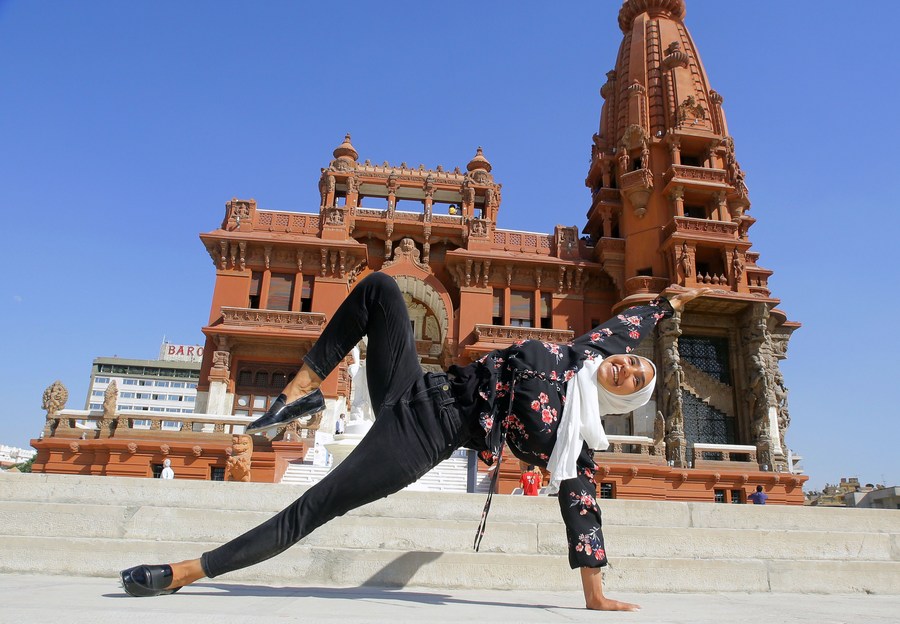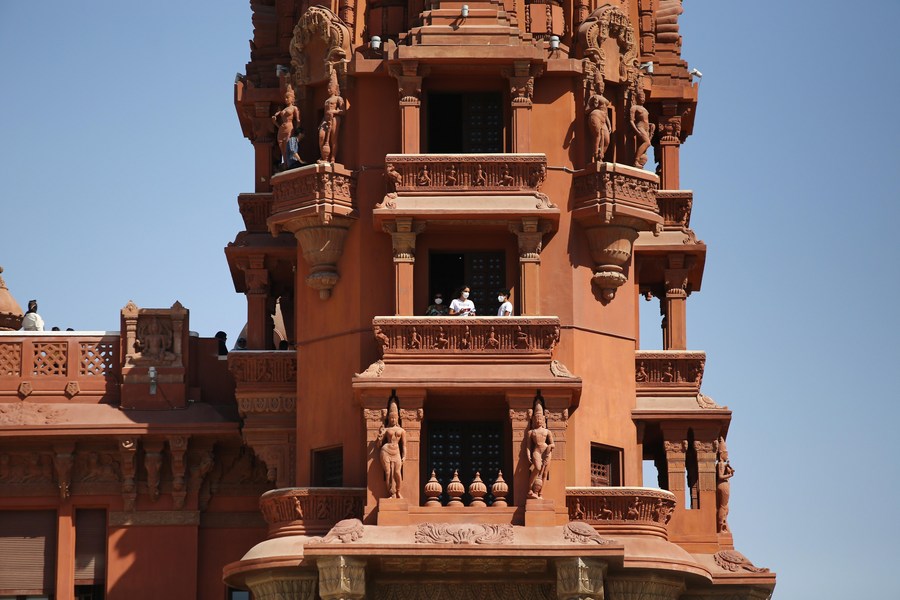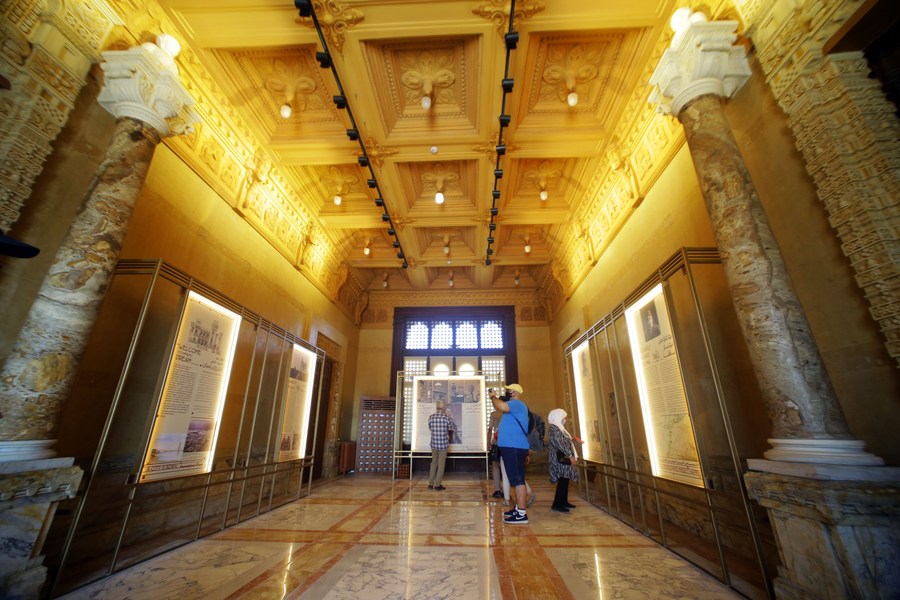
A woman poses for photos near the Baron Empain Palace in Cairo, Egypt, on June 30, 2020. (Xinhua/Ahmed Gomaa)
Egypt reopens Baron Empain Palace, an Indian-inspired mansion, owned by a wealthy Belgian millionaire between 1907 and 1911.
by Ahmed Shafiq
CAIRO, July 1 (Xinhua) -- Dozens of visitors toured eagerly the rooms of the legendary Baron Empain Palace in Cairo's Heliopolis district which was recently reopened to the public after it was fully restored for the first time.
"This piece of art is breathtaking...I have never been to this place before and I really regret I did not try to visit it before," Menna Abdel-Hamid, a college student from Cairo, told Xinhua.
The 19-year-old young lady said she has seen so many news about the reopening of the palace in the past few days, noting that she has decided to visit the landmark after her friends told her how beautiful the structure is.
"I love antiquities, but I mainly focus on pharaonic, Greek and Roman monuments...but this one, although a bit belongs to modern time, is seriously fantastic," she said as she prepared herself for a group photo with her friends with the palace in the background.

A woman visits the Baron Empain Palace in Cairo, Egypt, on June 30, 2020. (Xinhua/Ahmed Gomaa)
On Monday, Egyptian President Abdel-Fattah al-Sisi inaugurated the palace after the completion of its first-ever restoration.
The Baron Empain Palace, better known as Le Palais Hindou, which literally means the Hindu Palace, is a distinctive and historic Indian-inspired mansion in Heliopolis that was owned by Belgian millionaire Baron Edouard Empain, who is also the founder of Heliopolis district.
The palace, which was built between 1907 and 1911, was designed for Baron Emain by French architect Alexandre Marcel and decorated by Georges-Louis Claude.

People visit the Baron Empain Palace in Cairo, Egypt, on June 30, 2020. (Xinhua/Ahmed Gomaa)
It was inspired by the Hindu temple of Angkor Wat in Cambodia.
The facade of the two-storey piece of art is richly decorated with sculptures of snakes, dragons and other figures. The construction is completely made of concrete which was a new building material at the time.
For many years, the palace was considered a place of ghosts that actually turned out to be bats.
The palace now serves as an exhibition featuring the history of the wealthy Heliopolis suburb through various eras.
Abdel-Rahim's friend, Banseh Abed, said she has known a little about the history of the historical palace, noting she has learned more about it after reading a brochure about the palace that was distributed to the visitors by the Egyptian Ministry of Tourism and Antiquities.
"It is great to get knowledge about the history of my country...I really admired what I have known today about the palace which is located in my neighborhood," she said, flashing a smile.

People visit the Baron Empain Palace in Cairo, Egypt, on June 30, 2020. (Xinhua/Ahmed Gomaa)
Abed, who studies architecture at a Cairo college, said the masterpiece is rich of great details, from the design to the construction, sculptures, adding that such works help her much in her studies.
"I really loved how the palace looks like after the restoration...the work is perfect and the results are great," she said.
Meanwhile, Momen Othman, head of the museums sector at the Ministry of Tourism and Antiquities, said the restoration took more than two years.
"We followed all the instructions of the international ethics for restoration and conservation," he told Xinhua, adding that the reopening of the palace is very precious for the local resident of the district as the palace was neglected for a long time.
According to the ministry, the rehabilitation of the palace, which was carried out by the Engineering Corps of the Egyptian Armed Forces and private companies, cost 100 million Egyptian pounds (around 6 million U.S. dollars).
Egypt, one of the most ancient civilizations, has been working effortlessly to preserve its rich archaeological treasures and historical heritage, which will also help boost the once-flourishing tourism industry that has largely been affected by the political turmoil over the past few years.



